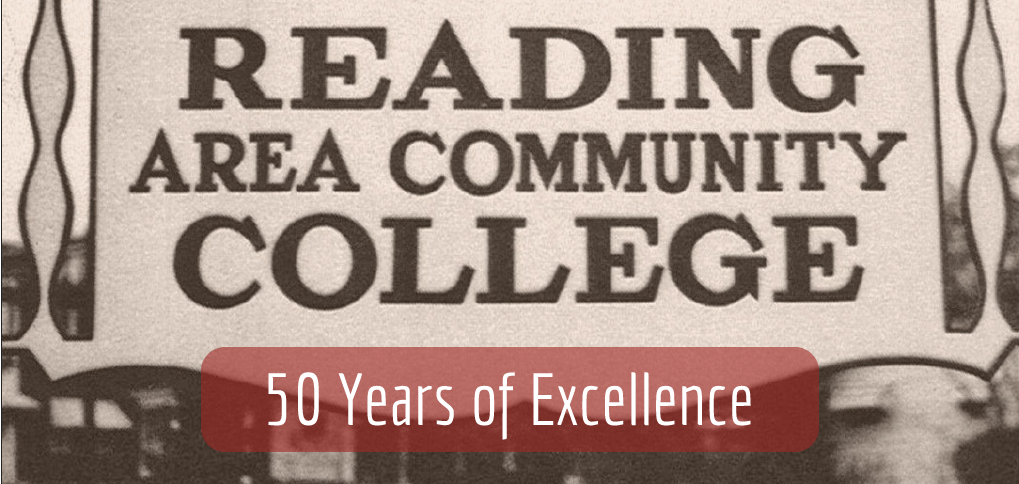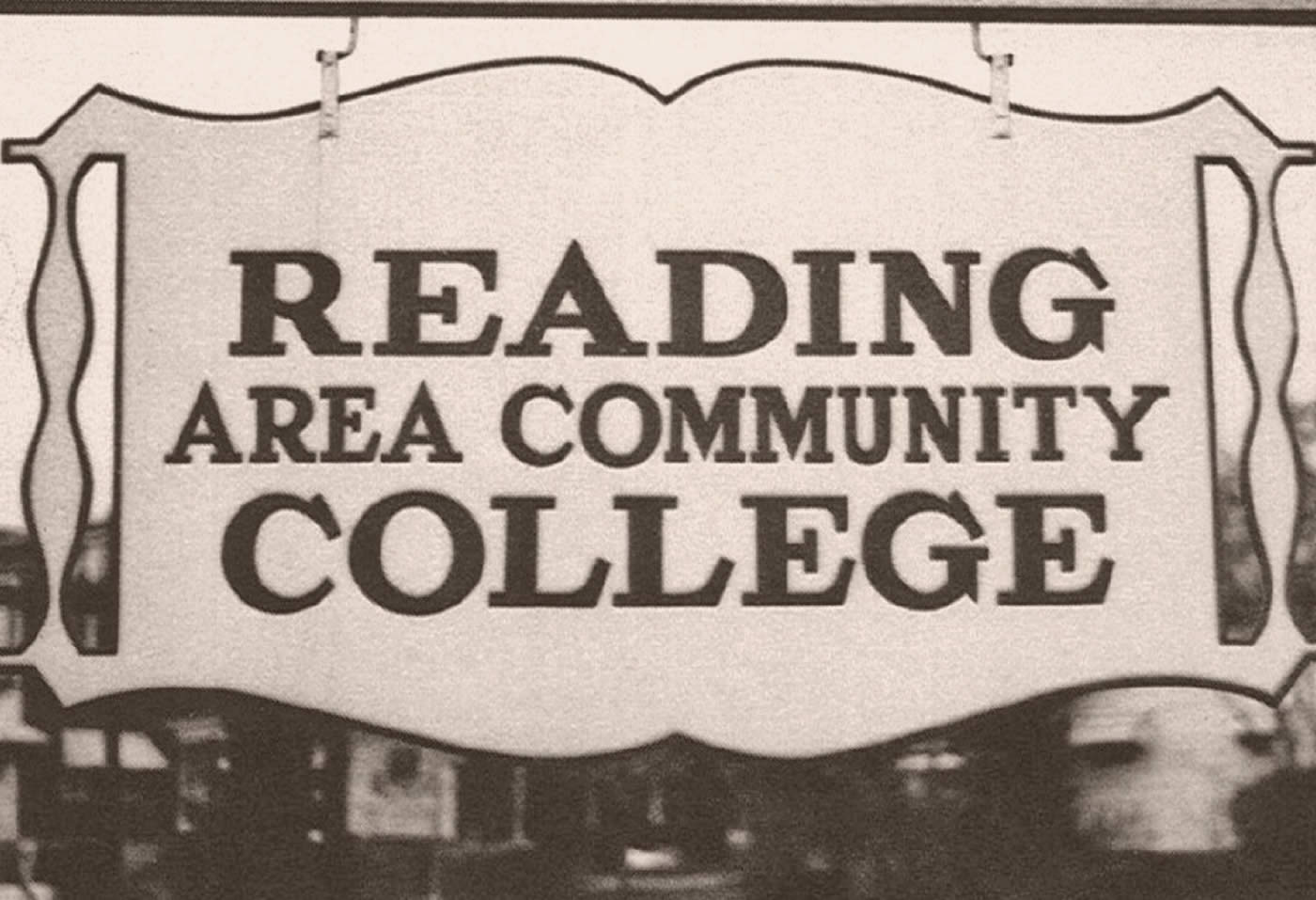Professor, Business Department, Reading Area Community College
What brought you to RACC?
I had had a year at Millersville University straight out of high school, interrupted that to get my Mrs. degree and two children, and thought, okay, I need to get back to this. I had an employer who would sponsor in terms of finance so I thought, okay, I'll go in. I was working with children and I went in to take one child psychology course. I still have my original receipt, by the way, so I can tell you how inexpensive it was then. Well one course led to wanting a degree, and one degree led to the fact that, yes, I was working with children at the time, but my heart was with business. So why not work on the business degree at the same time. One moment of encouragement from some RACC staff got me going. I had said to them, I need to go home and think about this. They said no you don't because the courses start now. So, I did it because when you go home and think about things, you talk yourself out of them. I believe I started at RACC during America's Bicentennial year – 1976 – and got my degree in 1978.
How did your experience at RACC shape your career path?
I knew that the scheduling would be the challenging part, raising two children, having a house and a spouse and a full-time job and a part-time job. And then college too. So, I can try it with one course. I don't see how I could mess that up. I felt that would probably be successful, and it was. The experience for my schedule was great. The flexibility was what it was all about for me. The idea that I could come sometimes during the day and sometimes in the evening. I just had that flexibility with my life and RACC was there with that flexibility.
I had full-time faculty. I had part-time faculty. The business courses were wonderful. They were putting labels on things I had experienced and teaching me just a whole lot of new stuff as well. I knew that my days with the preschool program would probably be limited because my heart was in business. Where that was going to go exactly, I didn't know. I knew it would mean jobs in the business world, and a career through that path. Well, the icing on the cake for me was that I knew that business was where my heart was and I just needed to get the degree, get more learning, and be able to put myself out there for a salary commensurate with a degree. I came in for one course. I left RACC with two associate's degrees.
Because my mother's house (and free babysitting) was on the way to Alvernia. I went to Alvernia for a bachelor's degree. Again, the flexibility of being able to go at night and work with the people over there was important. To have come later full cycle to have taught there and taught at RACC and spend all these years at RACC, just says a lot about the organization.
Then I got a full-time job at the Credit Bureau of Berks County. I asked God why things have happened in my life. I could never understand why I saw an ad for Glidden and went there and immediately got hired after being laid off and spending one weekend being funky like, "Oh, I don't have a job." I worked as an expeditor at Glidden Company in manufacturing.
I did not understand why I was there, but I knew I could do the job of it. It turned out that years later when I went full time into the classroom I needed to understand manufacturing. And there was that background from Glidden.
In mid-1970s I started doing tax returns so I had that background to work with as well. I also worked as a manager at the Oley IGA, but when I had had enough of the weekends and all of that, I came back to RACC.
So, I talked to Paula Irwin who was filling in as Business Division Chair for Joe Richter who was on sabbatical. I said," I think I can teach", and she said, "We need somebody for taxes." I said, "I think I can do that." So, I started with one course there. Then Paula asked "You have a computer at home so can you teach this class?" I was always willing. Years later Carol Alspach came to me and she said "We're going to do telecourses. Can you do that?" I said "Yes, although I don't know what a telecourse is." And then a full-time position became available and I got a full-time job at RACC. A year later, I was offered a job as controller at Penn State – Berks. The fact that that would take me out of the classroom, I had to tell them — no, no, I can't. I don't want to do that. So, then I didn't leave RACC, and I didn't leave RACC, and I didn't leave, and 30 years went by. I don't know how that happened.
Why am I here? If you're not inspired to do good for this place, something's wrong with you. I do think there's something spiritual going on. I say I retired the paycheck and the meetings but the teaching still goes on because that's what I am. It's not a job that you walk away from. It is who you are. It's what you do.
Many years ago, I started the program that offers RACC students a semester studying in Reutlingen, Germany. For those students whose lives were changed by this program, it just makes me so happy to have been able to do anything.
I am a mentor for my 14th protege through Mentors for Berks and I'm on their board. My joy is with these young ladies that I have helped. One is right now a full-time student, part of the Reading Collegiate Scholars Program at Alvernia, and she's working on her nursing degree. And it just fills me up with gratitude, like a light in your heart.
What advice/insight would you give to current RACC students?
Today, many, many things, of course, and I'm still an adjunct instructor so I'm still telling them things. When I sat with them in in my office and they were debating what to do, I used to say — "In five years, you're going to be five years older. You can be five years older with a degree or without." Now you can substitute any number you want there for the five years, but you just have to keep encouraging them to set that goal. So, in all my management classes, I asked them what their educational goal is and I make them put it in writing. I make them say "in 2025" or whatever the date is so they have a true goal in mind. And that's encouragement for them to have that.
And the other thing that I think is so important at RACC is to say "You may have in mind a four-year degree, a bachelor's degree, but if you finish an associate's degree first, no one can ever take that away from you." Between the associate's and the four-year degree. anything can happen. And it could take you another ten years to do that extra two years. If you have that associate's degree, you have something on your resume as an accredited degree. The other thing I would always tell them was don't take summer off. Take an online course, do not stop.
We love running into our students in their employment at restaurants and grocery stores and just anywhere and everywhere. Just the other day my sister-in-law, who is the immediate past president of Reading's Rotary group, was talking to someone at an event who had gone to RACC. The former student said that she had had a teacher that really influenced her, and then she said my name. When my sister-in-law told me the story later, it was like, Wow! Because a teacher affects eternity, he or she can never tell where the influence stops. So I just have to live that all the time. Because even the ones who get mad at me because I won't pass them through a course, I'm affecting their management experience and what they're going to be able to do. So, it's just a responsibility that I take seriously, It's an amazing job really.
2021 marks RACC's 50th Anniversary. What message would you like to pass on to President Looney and the RACC Community on this historic occasion?
I still value, most of all, the warm supportive atmosphere for anybody who walks in the door. There's a way for them to enhance their life, in whatever way that is necessary for them.
I will tell you that we used to say that "We went to (whispering) RACC" or that "We taught at (whispering) RACC." We just were not the gem then that it is now. We knew it was a gem when we were involved in it. But with the community, right from the very first vote, it was looked at as an upstart college. We became a force to be dealt with and such an added item for the community for the city, for the county.
I've been through so many iterations, including when college classes were held in what was called the northern tier, in the Hamburg School District in the evening for students.
We made it as available as possible, and that is still going on now. And just to have all these beautiful buildings and be on one campus. I was there when we moved into what was the Holiday Inn and, and we still had the restaurant — that was the best part.
We then became visible and united, almost all of us in one building. It just grew from there as the buildings around us became available or we rebuilt them. It's just been a wonderful, wonderful history and I'm old enough to have lived through it all. It was great. It is great.


